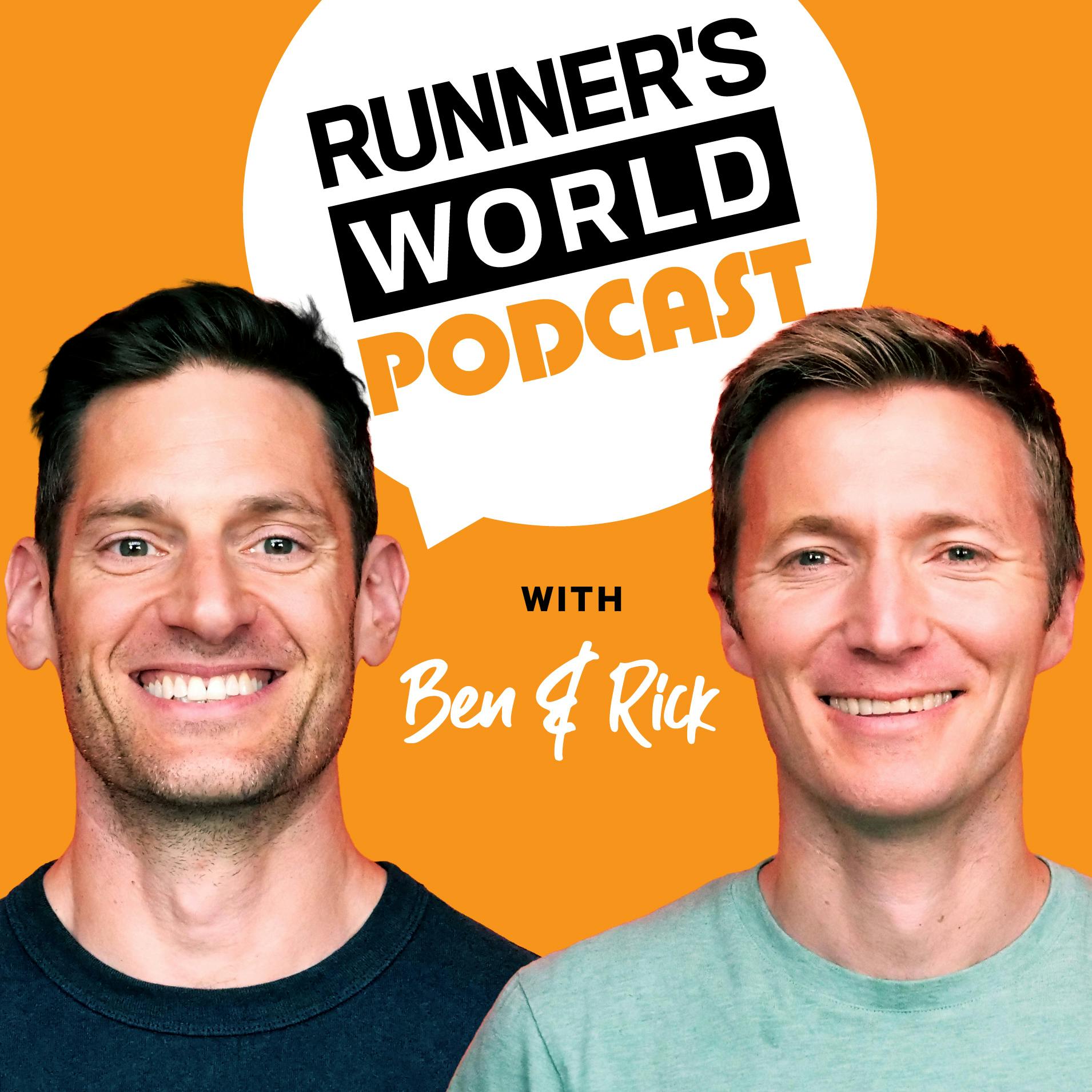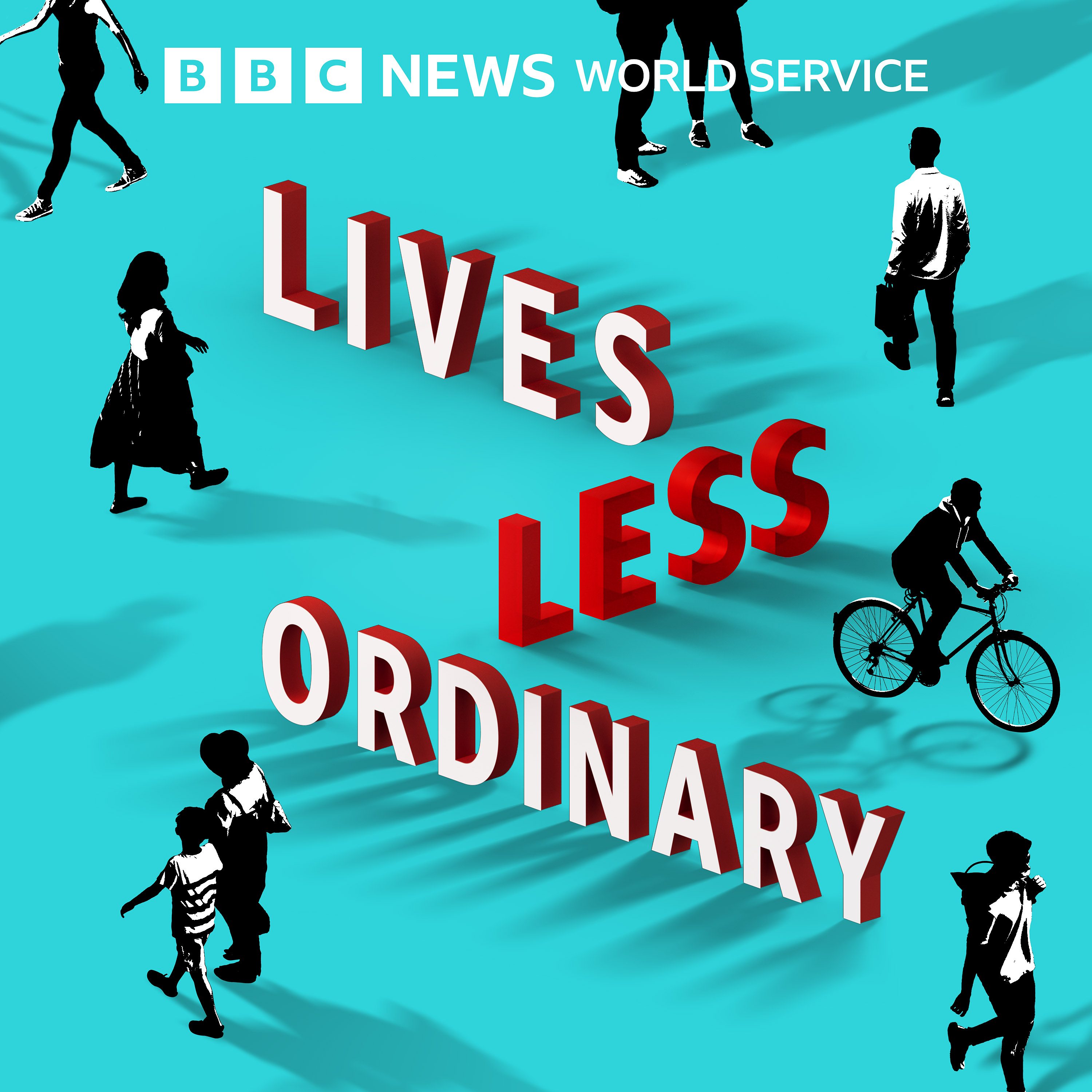
Brian's Run Pod
Welcome to Brian's Run Pod, the podcast where we lace up our running shoes and explore the exhilarating world of running. Whether you're a seasoned marathoner, a casual jogger, or just thinking about taking your first stride, this podcast is your ultimate companion on your running journey.
Join us as we dive deep into the sport of running, covering everything from training tips and race strategies to personal stories and inspiring interviews with runners from all walks of life. Whether you're looking to improve your race times, stay motivated, or simply enjoy the therapeutic rhythm of running, Brian's Run Pod has something for every runner.
Brian's Run Pod
Advancing Your Run: Expert Insights with Coach Andrew Wren Pt 3
Ever wondered why your 10K run or half-marathon times aren't improving? The answer could lie in your lactate threshold. Our guest, pro running coach Andrew Wren, is here to demystify this often overlooked aspect of training. He shares his insights on the importance of lactate threshold as the anchor for our running zones. Andrew reveals how even the slightest changes in a runner's routine can boost this threshold, enhancing running times and, surprisingly, mental health.
But it's not all about the lactate threshold. In our chat, we tackle the intriguing world of individual metrics in running. Discover how your age, the fatigue you're experiencing or even that glass of wine on Friday night can impact your running performance. More importantly, learn why tracking small progress metrics can have a massive impact. We highlight the advantages of supplementing running with activities like strength training, plyometrics.
https://www.runwolves.com
Brian's Run Pod has become interactive with the audience. If you look at the top of the Episode description tap on "Send us a Text Message". You can tell me what you think of the episode or alternatively what you would like covered. If your lucky I might even read them out on the podcast.
Instagram
So you're thinking about running but not sure how to take the first step. My name's Brian Patterson and I'm here to help, and welcome to Brian's Rompod. Welcome back to Brian's Rompod and welcome back to the final part of a series of three interviews with the professional running coach, andrew Wren. In this final interview, we start off by. Andrew starts off by explaining what is lactate threshold. Now over to you, andrew, to explain. That is basically, if your lactate threshold is higher, it means that you can.
Speaker 2:So your lactate threshold, your lactate threshold I would tend to use lactate threshold pace and heart rate So the lactate threshold can be viewed as an anchor for the rest of your running zones. So I talked a lot about zones today, mostly zone two and so forth, but the lactate threshold is the threshold between zone four and zone five. It is the threshold at which your body is creating too much lactic to be able to purge it, so it goes up exponentially. Now what that means is that. So to increase that basically would increase your, on the most simple level, would increase your 10K time and your half marathon time, because that's the speed that you run that intensity. However, it would also increase the speed at which you run everything underneath that as well.
Speaker 2:So, for example, you would then be able to run faster in zone two. So now zone two would be sort of conversational pace, usually right It would be. For me it's sub 150 heart rate, somewhere between 140 and 150 heart rate, and if I increase my lactic threshold from four and a half minute k's to four minute k's, i will be able to run my zone two easy runs at the same heart rate but at a faster pace, which means for a marathon runner. If you increase your lactic threshold, you'll be able to increase your sort of marathon pace.
Speaker 1:Yeah, Do you? I mean, is this something you With clients or people who are beginners? is this something you might talk about in the early stages? Or would you say sort of like, okay, you've been with me six months, let me introduce other terminology or other types of difference? It's not at first.
Speaker 2:So once they've, once they're sort of able to run 5k, then we'll talk about, because once almost anyone has run their first 5k, their initial reaction is okay, how can I do that better, faster, more comfortable? And the answer to that question is what we've just been talking about essentially. Yeah, it's not the be all and end all. It's not like the kind of Instagram-y, one simple trick to fix your running type of.
Speaker 1:Thing.
Speaker 2:Because that thing doesn't exist, right. But it is fundamentally, if you can move your lactic threshold, you are kind of moving the goalposts of your running largely.
Speaker 1:Do you get I don't know something I've covered in previous episodes people about On the sort of mental health type of thing? I know it's a kind of a bit of a A lot of people talk about these days, is it? Do you get clients who come to you that feel that doing running has helped them, has had added benefits? So it's not just about the training or the charity race or the marathon that they're running. There are other benefits that they can't set. It's like you're being a not a life coach, but you're being a psychotherapist as it were.
Speaker 2:Well, actually it's funny you should say that because I am actually going through the counsellor and therapist. I'm going down that route, i've started on those qualifications. It's going to be like a six year process to go through it all. But, yeah, i have decided to do that. But from just to address the question, the yes is the simple answer and it comes in many different ways.
Speaker 2:Like, you'll have people who will say like oh yeah, like I've had some athletes, and they're, especially over the past few years, right, things have been tumultuous, right. Of course, yes, having something which kind of anchors them is extremely useful. But I've had people who, over the past year, have had, i mean genuinely like you know those people who, when there are some people and you see them and you go, you're right, and then they give you a sort of slightly phobium answer and then you carry on with your day. There are a couple of my athletes where you're right and they'll go. No, you stop and you'll turn something, you go.
Speaker 2:Are you all right, though? Like, are you okay? Yeah, because they've had like a really, really rubbish year, like, for various different reasons, and they do tend to find that if they can focus on something that's like within their control and something that, something that they can do for themselves in an extremely direct way. I think that I think that helps a great deal. I mean, i can't, i can't, like I have to respect professional boundaries. And the funny thing is I actually coach quite a lot of psychology, like very eminent psychologists. So I do So, i do, i do chat with them about this sort of stuff, but yeah, it's, yeah, it's yeah, using their own psychology.
Speaker 1:Even on a simple level. I mean, you know people talk about this kind of runners, you know high, you know that's in Dauphin and Rush, that you get at the end of the run, sort of thing. And you know that's just a very you know small thing, because I know I mean, okay, i'm doing a podcast about running and and every now and again I hate it at the you know going out the door and something like that And then by the time you know it's, you know I've done the five Kora. Right now we're even like this morning, sort of thing. I don't just feel, you know, i just feel a hell of a lot, a lot better to sort of you know face, whatever this you know, yeah, absolutely Yeah.
Speaker 2:I mean I mean, hey look, we all get like that. I mean I'm, i'm lucky, in the 90% of the time when I go running I'm at work, so I don't have the same motivational issues that a lot of people will have, right, i mean, obviously I'm tapped into, that's my special issues because it's my job to be. But, but, fundamentally, like, i go out running because either I'm commuting to somewhere or I'm literally going out running with someone. So, yeah, so, but yeah, from a, from both a, both a sort of short term and medium and long term. It can have a, it can have an extremely positive effect. Both of us are like, as you alluded to, sort of a pure releasing endorphins perspective, but also just on a, it is a constructive, constructive thing which we can control.
Speaker 2:There are there are negative aspects to this, though there are. Like you'll meet people especially around my, my time of life not me specifically, because I'm good at changing focus. Like I will change focus and just focus on something totally separate within running. But like next year, i'm 39, so I'm 40 next year and I'm going to try and break as many of the British athletics merit standards as I can. So the merit standards are all standards at the track and field disciplines. So everything from 100 meters up to 10,000 meters, you know all the fields and jumps and stuff like that. So that's, that's going to be my focus, but occasionally I will. I will not run ultras or marathons and I'll just go and run mile races or something like this, and it just gives me a refreshed focus.
Speaker 2:Because what can happen is like some people will be going for all of the six marathon majors, for example, but what they'll find is that, oh, i'm not as fast as I was last year, right, like I've got. Because because inevitably, people are, like people are getting slightly older, which shouldn't necessarily slow them down very much, but what it actually does they have kids, which means they're more tired. They, some of these people, have jobs, which which means that they're tired a lot more. Some people have jobs where there's quite a bad drinking culture, which means that they're fatigued a lot more. So you know, there's all kinds of, there's all kinds of factors in this, and what running sometimes does to people is it provides this kind of unfortunate measurable where you can go oh right, yeah, i was super fast last year, but this year, you know, i'm not able to to maintain that, which is why I tend to avoid people focusing on the, the macro speeds or the macro kind of event times and think more about the micro things that they can affect.
Speaker 2:Like, i spoke to a marathon runner a few days ago And one of his goals for next month is increasing his standing long jump time sorry, standing long jump distance Because fundamentally of those five things, five facets of running fitness that I mentioned earlier, i think strength is going to be one of the bigger weaknesses for him. But, like strength itself, like you know, it's quite a woolly thing to just use as a word, right, because strength can mean all kinds of things. But if I get him to, if I persuade him correctly that doing more plyometrics and doing a bit more strength training is going to help to improve his improve his running, and we'll measure that using the standing long jump that you can do in his back garden, then we'll have something which we can, month on month, we can test and see that he's getting better at. So you know, like being able to give people things where you know on an extremely granular level that they're getting better at, sort of on a regular basis, is more of a positive way, because we do have a really bad tendency to just focus on event goals and event specific goals.
Speaker 2:And if you're a marathon runner, that is just, it's just really difficult, because you can run like two a year maybe, and if you're sick the week before one of them, what have you done? Like you've ruled out half a year, right, if that's the thing the only thing you care about. So I like to be able to point to other metrics and go look, you are getting faster, you are getting stronger, you're getting. You know, this is improving, that's improving, this is fine, rather than people focusing purely on the events.
Speaker 1:I mean one thing. I mean I, just by talking to you, one thing I've really learned is that I'm guilty of this, that anyone is, that we are creatures of habits. You know, i've done the same run-keep training program about three years in the trot sort of thing, and I think it always is worth, like you say, just doing something completely different as long as you're moving. Yeah, absolutely.
Speaker 2:I care.
Speaker 1:My wife and I go dancing once a week And even that's that you know and that you know if you think about the things that's involved there, you know in terms of coordination, you know companionship with someone else and doing it you're not thinking about the movement. You're thinking about you're producing something. It's just having doing something completely left field. You know out of the ordinary, Like my goals.
Speaker 2:Any of them yeah, some of them are my main kind of measurable goals for the next two or three months. One of them is box jump, so I want to be able to jump higher. One of them is long jump, because I want to be able to jump further My 30 meter speed, a few strength goals and some flexibility goals. There's no time goals, nothing. I'm not focused on it at all at the moment. It's not important to me right now. Now I do know in the back of my mind that I want to run a 55 second 400 meter And I know that you know there's a few, there's a few things that kind of you know. Sit back here somewhere that I'm pointing to the back of my head. but I do know that there are times involved at some stage.
Speaker 2:But quite honestly and I mean this, this is this is one of the most controversial statements as a coach, by the way I don't really like time goals for events Because fundamentally, they're hard to implement. So so, for example, right, if I give my, if my athlete wants to run, a say they want to run a 40 minute 10K, there is not really any point during that 10K where that goal is helpful? It might be useful in training, but not really, because you train to the best of your abilities. You don't train to what you think you can run an event at. But so if someone goes into an event thinking, all right, i've got to run a four minute case, well, okay, but I've never raced a single event where I've run at the same speed throughout. There'll be some that I got my. Some people are blessed with an ability to run perfect splits, but not everybody is. So most of the time I'll go out too fast and now need to ease off and I'll be able to speed up at the end, which is a u-shape, which almost all, almost all races are running a u-shape, and What you'll find is that you'll find The, the, the. Your perceived speed will speed you up at sometimes and slow you down at other times, and those aren't necessarily the times when you should be speeding up and slowing down. It's yeah. I don't find that Having time goals necessarily helps people. Sometimes it will, but not always, especially in marathons. If you look at marathon results, there's big clusters around the hours, the half hours and the quarter of an hours. Now you can't tell me. That's natural, like, but like it's impossible to know whether that's speeding people up or slowing it down in every individual case. Yeah, but you know I To turn that into a positive why I would tend to get my athletes to do is to learn how to how to race or not just racing, learn how to Run the individual efforts.
Speaker 2:So Which it's Essentially like. I'm big on compartmentalization. So if, for example, you're running like a 10k, i tend to split my 10k's into three parts 333.33, recurring parts, right, and so the first part I Will. I know that I'm going to be full of adrenaline at the start, so I'm going to go out, i'm going to hammer it and I'll probably run that first First, that first 3.3k in like 12 minutes or something, something like that. I'm going to run it too fast.
Speaker 2:But the important thing is that, on on that that first checkpoint, i think to myself I look at my watch, i see what the time is or what time I've taken, and then I look at any other day, like maybe a heart rate Not really massively important, but I will look at that and then I will just think about how I feel. So I think, okay, i've run that. My emotional reaction is that I've probably run that a bit too fast, but how do my legs feel? How do I feel psychologically? Am I breathing well, how is my posture? you know various things which would be different from person to person, but essentially I'll be. I'll think, okay, how do I feel? should I go faster, could I go faster? And then I will implement whatever I decide at that moment.
Speaker 2:Now, obviously, i'm doing this whilst running, and Then, you know, another 3k's time I will go again.
Speaker 2:I'll look at that and I'll go.
Speaker 2:Okay, right, did I overcorrect, did I?
Speaker 2:so You know, i will think about How I'm going to run it, as I'm running it, and if you can not perfect because there's very few people who actually Perfected that but if you can get better at that system of actually asking yourself the right questions and finding the right answers to how you feel and how, how you should go, that's way more important than knowing what pace you should go and because, fundamentally, you might surprise yourself and you might actually be faster than you think you were.
Speaker 2:Or you might surprise yourself and you might be slow And you think you are. Who knows right? but, yeah, i would rather Teach my athletes to be better racers or better you know. How do you, however, you want to put it better at running those efforts than Then you know, giving them really specific goals. I like my athletes to race quite a lot, and I mean from beginners on up. I like my athletes to race a lot. I like my athletes do one mile races to do 5k races, 10k races, do the parents, then you are putting a lot of pressure, maybe unnecessary pressure, on the athlete.
Speaker 1:You know.
Speaker 2:Because they, i want to put them into a situation where they're under pressure. Um, right to themselves. Yeah, just to, you know, just just to. Because because, fundamentally, when they get to whatever race they're training for or whatever effort they're training for, they are going to be under pressure. So putting them under pressure and seeing how they deal with it in the lead up to it Is going to be beneficial.
Speaker 2:Because if the first time if, say, you've signed up for a marathon and the first time you pin your number on is the morning of the marathon, the whole experience of that is going to be so alien. So I would rather people were a bit more used to it. Um, now, i'm quite, i'm quite gentle with people for the most part in terms of, like I'll often put I'll give them a rest week, leading in every four weeks. They'll get a rest week and then we'll I'll get them to do some kind of Speed for people past sort of the 5k point. Um, i'll get people to do Like, usually a park run or whatever it is, and You know, i'll put something tongue-in-cheek in their plan like 5k, world records, etc. Something like that. So they know that I'm not, i'm not like enforcing anything, but, yeah, i, i like people to go out and Try and see what they can achieve, but the other, the other part of this, which which is probably quite important, is that I like to normalize failure.
Speaker 2:I Don't. I don't mind if people fail and I want them to learn how to do it and they should stop minding Because sooner or later it's gonna happen and ideally you get used to it sooner rather than later. I dropped out of an ultra marathon two weeks ago And I don't care. It has not affected me physically. A fair story. Psychologically, i do quite a lot of efforts to failure. So so you know, like it's, it's I want my athletes to feel comfortable with I understand the pressure aspect, but like I want my athletes to feel comfortable with trying to do as well as they can and not quite managing it.
Speaker 1:Just a final question, but are there? is there anyone or any coaches that you admire, or is anyone that Now you're asking Yes, my favourite.
Speaker 2:I've got a couple. Weirdly, they're Americans. Jack Daniels is my favourite. I often find myself sending videos of Jack Daniels to my athletes. No, the funny thing about Jack Daniels is He's not making whiskey then.
Speaker 1:He doesn't make whiskey. No, no, no.
Speaker 2:But he's been saying things since like the 70s and 80s Maybe I'm overselling his age there For a long time. Certainly That people are still not really listening to. He could be saying absolutely nonsense, but what I mean by that is there's some things which are fundamentally accurate, like the things that I will say about the long runs and people not running go long runs too fast. There's one crucial nugget that Jack Daniels a great video where he coaches everyone from elites down to charity runners who are running their first marathon, which is definitely the best way to set your life out, because having a variety is good. But he fundamentally says that one of the reasons he doesn't set many workouts by distance.
Speaker 2:So, for example, if you were getting a training plan off the internet and you had distances of how far you're supposed to run, that is not universal, because if he gives, say, kipchoge, a distance to run say he gives him like a 30k long run and he gives someone who is running their first marathon for the British Heart Foundation the same 30km at low intensity. Kipchoge is running for two hours at most, whereas your charity runner is running for four hours. Now why is your charity runner running twice as long as Kipchoge, we're giving someone the wrong. So there's some quite fundamental things which still are not heated Like. You will still get loads of training plans which give a distance. Your body doesn't know how far you've got, your watch does, but your body doesn't have a clue, right? So we still haven't really transitioned to doing those workouts by like, okay, go out and run for two hours at low intensity. It's curious to me, but Jack has been saying this stuff for decades.
Speaker 1:And he said there's another, coach you can't.
Speaker 2:Yeah well, joe Freel actually I like Joe Freel as well. He's a triathlon coach. He actually he's the guy who started Training Peaks. There's quite a few, actually there's quite a few coaches that I really like, but I can't always remember all of the names I've said on my head. But yeah, what's he called? His surname's Hansen, and he's a sprint coach from Denmark. I really like him as well, mainly because he's modern. He's super modern. He's actually the current Danish national 100 meters champion, but he is an excellent coach because the way that he presents things and he presents it online as well That's why this is so unusual is in a balanced and nuanced way.
Speaker 2:Maybe it's maybe not a uniquely Scandinavian, but it is quite a Scandinavian way of working. He's very it's very easy to get into the habit of just saying really definitive things on the internet And there is basically no definitive running advice apart from stand up straight. That's one of the few that you can give everybody, but there's no real definitive running advice, and he's very good at saying. Saying like this is I think this is the right way to do things. It's like if you're having a conversation with anyone, right, it's less confronting to say, well, i think such and such, or I feel this right, it's a more, whereas the way the internet works for clicks and stuff, it's much easier to go. Yeah, this is the simple trick that's kind of solve your running etc and so on, and he's much better at that.
Speaker 2:He's extremely, he's extremely good and rigorous and, yeah, very good, i like him a lot. I get a lot from him. I think what I would say is, actually, i would give. I'm not going to give his actual name, but one of my athletes is, as I've alluded to before, one of the many excellent psychologists that I coach. Okay, yeah, i get a lot from him as well, actually, because he's an expert in growth mindset. Oh, yeah, i've, i've, i've, i've, i've, i've.
Speaker 1:I've, i've, i've, i've, i've, I've, i've. I kind of talked about that because I did previous wanted to become a web developer, though it didn't quite work out. But they do talk about that in terms of your having to embrace failure, because it was interesting that you said that If you listen to the professor from Stanford who did the TED Talk, i've got your name. now that's very, very interesting.
Speaker 2:Yeah, it's fascinating stuff. I really like the growth mindset stuff. The only problem with that is that I have taken it into my own coaching and I have used it a lot. However, if Chris was on the last interval of 12, 400 meter intervals and he would stand there and go, i just don't think I can do this. I would look at him and go. it's not very growth mindset, is it? Yeah, you know that's a bit toxic, isn't it?
Speaker 1:Anyway, andrew, i mean it's been amazing talking to you honestly, and I could have talked to you for hours.
Speaker 2:Yeah, it's genuine pleasure. Oh, I can talk, i can really talk, yeah.
Speaker 1:But do you have any kind of socials you want to promote? I know you've got websites.
Speaker 2:I absolutely don't want to promote my socials, right? Because my Instagram presence is entirely tongue in cheek. Oh right, have a look at it. It's entirely like quotes that my athletes have said within sessions. My website is runwolvescom. Yeah, ok, but yeah, fundamentally, if anyone finds that website, if they want to text or email me with any kind of question about running, they can go ahead and do so, because I will answer it.
Speaker 1:I'm not going to charge them for it. Great, great. And maybe, like I said, maybe we can chat again on the podcast sort of thing. Yeah, sure that'd be great, That'd be great. Thanks very much for agreeing to come on.
Podcasts we love
Check out these other fine podcasts recommended by us, not an algorithm.

Life Changing
BBC Radio 4
Tech Life
BBC World Service
Runner's World Podcast
Runner's World UK
Buzzcast
Buzzsprout
Newscast
BBC News
Understand
BBC Radio 4
Cyber Hack
BBC World Service
Ghost Story
Audible| Pineapple Street StudiosDiz Runs Radio: Running, Life, & Everything In Between
Join Denny Krahe, AKA Diz, as he talks with a variety of runners about running, life, and everything in between.
Uncharted with Hannah Fry
BBC Radio 4
The Global Story
BBC World Service
The Coming Storm
BBC Radio 4
Lives Less Ordinary
BBC World Service
Do Epic Shit Today Podcast
Hannah Mulhern
The Rest Is History
Goalhanger
